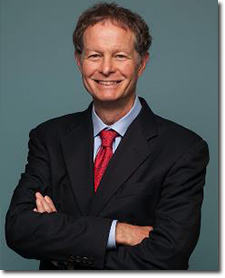Supply Chain Leaders Become Societal Leaders

As supply chain leaders, you have the power and potential to make a difference in your organizations.
Each day, leaders use skills to ensure company efficiency and goal achievement, make educated decisions that help drive the business forward, and inspire colleagues and direct reports to sharpen their skills and perform at their best.
But, like supply chains themselves, these positive influences don’t have to stop at your building’s four walls. More and more, executives are expanding their leadership roles beyond their companies and into society.
Last week, The New York Times highlighted some of the leadership work of Apple CEO Tim Cook, who happens to have a background in supply chain. In late August, Cook went on a mini tour of the United States to focus on manufacturing, jobs and education.
He stopped in Ohio to visit Cincinnati Test Systems, the technology company that makes the equipment Apple uses to test the water and dust protection for the iPhone and Apple Watch, flew to Iowa to announce a $1.3 billion data center that will store information for FaceTime and iCloud, and then ended up in Austin to announce a new community college program designed by Apple to teach students how to write code for iPhone apps.
Article author Andrew Ross Sorkin points out that these themes generally are covered by politicians, but business executives, including Cook, now are stepping up to lead.
“[Cook] said he had never set out to do so, but he feels he has been thrust into the role as virtually every large American company has had to stake out a domestic policy.”
Cook admits that many people probably perceive that his loyalties lie with Wall Street, but he’s actually dedicated to more noble purposes. The article continued:
“I think we have a moral responsibility to help grow the economy, to help grow jobs, to contribute to this country and to contribute to the other countries that we do business in.”
In the environmental arena, for example, Cook has worked to convert all of Apple’s U.S. corporate facilities as well as sites in 23 other countries to using wind and solar power exclusively. Similarly, the new data center in Iowa will fully run on renewable energy.
In terms of jobs, the new data center will create 1,700 short-term construction jobs and about 50 long-term employment opportunities. Apple leaders also agreed to donate as much as $100 million to local infrastructure, including building a youth sports complex, to invest in the Iowa community.
However, Cook feels that Apple can do more to create jobs and inspire young workers through education. The Apple-designed app programming curriculum mentioned above already has been rolled out at community colleges in Alabama, Ohio and Pennsylvania, in addition to the plans to add the curriculum to Austin Community College.
This curriculum will enable a wider range of young professionals to enter the growing tech job market and code apps based on the Swift programming language. Last year, Apple created 150,000 new jobs through App Store opportunities and paid $5 billion to app makers.
A leader’s responsibility
Although many of these initiatives have business benefits, they also are opportunities to help the greater global community. Consider the definition of corporate social responsibility from the APICS Operations Management Body of Knowledge Framework:
“Corporate social responsibility means using fair and beneficial business practices regarding labor and the community or region where a firm conducts its business. It is about providing a safe work environment, giving back to a community by contributing health care and education, and avoiding the exploitation of labor and resources of an area.”
Apple and Cook’s initiatives touch on many of these areas and show that business is about more than the financial bottom line.
APICS 2017 keynote speaker John Mackey also promotes corporate social responsibility as cofounder and CEO of Whole Foods Market — and even takes the concept a step further with his philosophies of conscious capitalism and conscious leadership. For Mackey, conscious capitalism is a way of thinking about business that shows awareness of a company’s higher purpose, beyond making money.
In terms of leaders, Mackey told APICS magazine that conscious leaders are keenly self-aware and recognize their own deepest motivations and convictions. Mackey stated in the APICS interview “Encouraging Wholesome Leadership and Business Practices.”
“Conscious leaders are important because they make a positive difference, embed a shared purpose, help people grow and evolve, and make tough moral choices,”
Mackey will help APICS 2017 attendees learn how to become conscious leaders, enabling them to use their companies’ influences to shape a better global future.
Article Topics
ASCM News & Resources
Supply Chain Stability Index sees ‘Tremendous Improvement’ in 2023 Supply Chain Stability Index: “Tremendous Improvement” in 2023 The Right Approach for Supply Chain Education The reBound Podcast: Innovation in the 3PL supply chain Supply Chain’s Top Trends for 2024 Require Talent Investment for Success Resilience Certificate Now Available from ASCM ASCM conference highlights importance of geopolitics in the supply chain More ASCMLatest in Business
Ranking the Top 20 Women in Supply Chain Microsoft Unveils New AI Innovations For Warehouses Let’s Spend Five Minutes Talking About ... Malaysia TIm Cook Says Apple Plans to Increase Investments in Vietnam Amazon Logistics’ Growth Shakes Up Shipping Industry in 2023 Spotlight Startup: Cart.com is Reimagining Logistics Walmart and Swisslog Expand Partnership with New Texas Facility More Business














